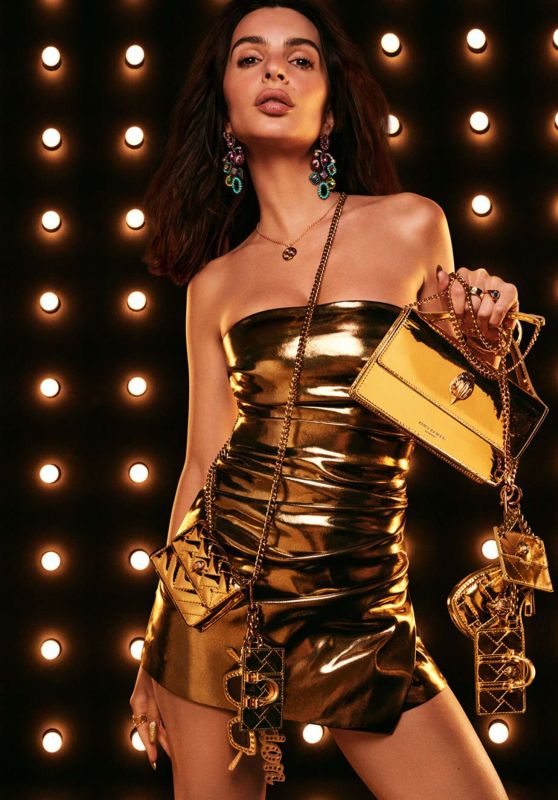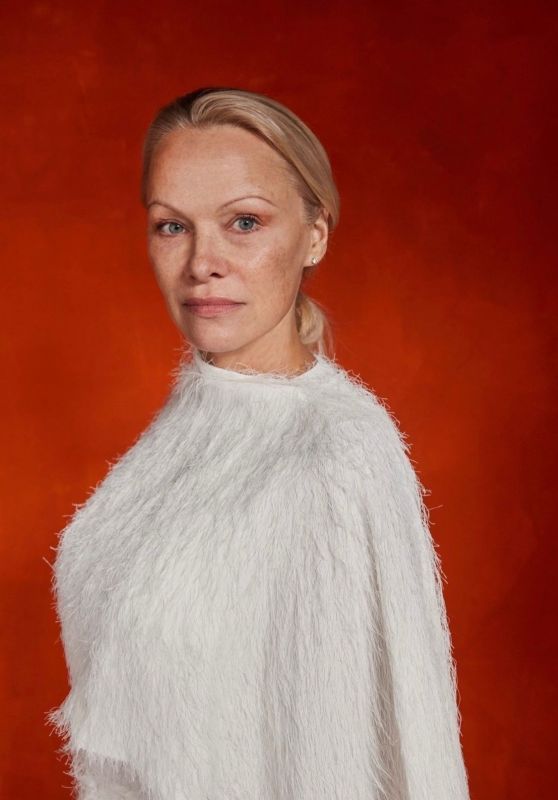Megan Park’s two features, “The Fallout” and “My Old Ass,” couldn’t be more tonally different — one is about a high schooler dealing with a very contemporary trauma and one is about a high schooler connecting with her future self (via a celebratory 18th birthday mushroom trip, of course). With or without help from the vision of her as a 39-year-old (Aubrey Plaza), “My Old Ass” star Maisy Stella’s Elliot needs to figure out, as all high schoolers must, what kind of relationships she wants to pursue.
But a strength of Park’s work across both films is her ability to be both incredibly specific in voice, humor, and pacing about universal themes. One of the challenges and great joys of “My Old Ass” was Park’s ability to shape the film to echo the ‘90s coming-of-age stories she loves, while feeling both of this moment and somewhat timeless.


Park and her team created this feeling using everything from the choice to shoot on location with natural light and beauty of Ontario to working with Jaco Caraco and Tyler Hilton on musical themes that feed into the more heartfelt, earnestly sentimental components of the story. “I wanted there to be a Chad theme that comes back around. That kind of John Williams-esque guiding the audience how to feel through score — which, if it’s done right, is really beautiful and really timeless,” Park told IndieWire on the Filmmaker Toolkit podcast.
But making a coming-of-age story feel timeless really depends on characters who seem like believable products of their environment. Park not only rewrote the “My Old Ass” script once she knew who she was casting, but was continually consulting with her actors — would you say this joke? would you actually say this line? — so their voices would be represented accurately.
For instance, the musical sequence that kicks off Elliot’s second poorly-handled drug trip to talk to her older self, in which she transforms into Justin Bieber and starts singing “One Less Lonely Girl” to her crush, Chad (Percy Hynes White), came about after Park talked to Stella about what her iconic tween concert experience was, then suggested Stella take up JB’s mantle.
“I think being in Gen-Z is very unique to any other generation. You don’t have to be a Gen-Zer to write for Gen-Z, but you have to be open-minded to what you know and what you don’t … you really need to be open,” Park said. “A fun part of the process to me is getting to know [the actors] and incorporating parts of their life or parts that I think are really interesting about them as humans and as actors.”
 ‘My Old Ass’©Amazon/Courtesy Everett Collection
‘My Old Ass’©Amazon/Courtesy Everett CollectionThat openness to ideas and specific detail is hard-won from Park’s own experiences as an actor, during which she saw different ways of organizing sets and how well they worked — or didn’t. The way that leads to the most creative success, in her book, is an intensely collaborative, non-hierarchical one.
“I think a director should be like the curator, where you’re finding really great people who are really good at their jobs and then you’re giving the space to do that job. That’s what I’m always trying to do with the people that I’m casting and also the department heads,” Park said.
The received wisdom that a movie gets made three times resonates with the “My Old Ass” director and has given her all the more reason not to be precious with some sort of imposed directorial commandment which must be handed down from on high. “The movie you write is never the movie that you film and it’s never the movie that ends up coming out. They’re three completely different things,” Park said.
The trick for a director, then, is to be able to track the growth of the original idea and stay true to it as it takes shape in each stage of the filmmaking process. Finding the right set of collaborators is part of what makes this possible for Park. “I don’t act anymore, but if I could go back and tell my actor self something, it’s, ‘If you don’t get the part, it’s not because you’re not talented, necessarily,'” she said. “It’s just, there’s an energy. There’s something that you can just picture when you’re writing it and when you see it, you just know it immediately.”
 ‘My Old Ass’©Amazon/Courtesy Everett Collection
‘My Old Ass’©Amazon/Courtesy Everett CollectionStella had read for a part in “The Fallout” and stuck in Park’s mind even after there wasn’t anything that felt immediately right for her (and even though the two had never actually met). With “My Old Ass,” Park wanted someone who could embody a kind of positive, bright, sunny energy while still being cool, something she hadn’t seen a lot of in female teenage characters.
“I thought there was a really cool, endearing, interesting quality and reminded me of a lot of movies I watched in the ‘90s,” Park said. “You can’t always take that quality and put it on camera. It’s not easy to do. So I was thinking about [Stella], or the idea of who she might be, as weird as that sounds, as I was writing it.”
But the ability to cast Stella at all, let alone cast her first before attaching a bigger-named actor for older Elliot, is not something that Park takes for granted. A lot of the authenticity in the film, not to mention its title, was able to survive into the finished piece because the “My Old Ass” team decided to make it independently and then sell it out of Sundance.
 ‘My Old Ass’©Amazon/Courtesy Everett Collection
‘My Old Ass’©Amazon/Courtesy Everett Collection“I do think that it was a really important way to make this type of movie … to make it for less money, tighten our belt a little bit in certain ways, but hopefully keep the authenticity of the story and the place and the little things, like the title,” Park said. “It was never any kind of battle with [Lucky Chap, the production company] which speaks a lot to how they were like, ‘Yeah, this is important to you and a love letter to where you’re from.’”
But Park was always kind of waiting for someone to nix the film’s title. That no one did shows nothing, and certainly no received studio wisdom, is inevitable. “I was like, ‘No one’s going to let this go the whole way. Like, I want to see business people sending ‘My Old Ass’ contract emails.’ And sure enough, that’s literally my inbox,” Park said. “Daily.”
“My Old Ass” is now available to stream on Prime Video.

![Rosario Dawson & Tiziana Rocca at the 42nd Torino Film Festival [11-23-2024]](https://celebmafia.com/wp-content/uploads/2024/11/rosario-dawson-tiziana-rocca-at-the-42nd-torino-film-festival-11-23-2024-12_thumbnail.jpg)
![Estelle at the 7th Annual International Women of Power Awards [11-24-2024]](https://celebmafia.com/wp-content/uploads/2024/11/estelle-at-the-7th-annual-international-women-of-power-awards-11-24-2024-6_thumbnail.jpg)

![Selena Gomez, Zoe Saldaña & Karla Sofía Gascón in ELLE US [Dec. 2024/Jan. 2025]](https://celebmafia.com/wp-content/uploads/2024/11/selena-gomez-zoe-saldana-karla-sofia-gascon-in-elle-us-dec.-2024-jan.-2025-9_thumbnail.jpg)

![Olivia Rodrigo Joins Lancôme as Global Ambassador November 2024]](https://celebmafia.com/wp-content/uploads/2024/11/olivia-rodrigo-joins-lancome-as-global-ambassador-november-2024-4_thumbnail.jpg)



![Hilaria Baldwin Steps Out in a Boot in NYC [11-25-2024]](https://celebmafia.com/wp-content/uploads/2024/11/hilaria-baldwin-steps-out-in-a-boot-in-nyc-11-25-2024-6_thumbnail.jpg)
![Paola Iezzi at Vanity Fair Stories Event [11-23-2024]](https://celebmafia.com/wp-content/uploads/2024/11/paola-iezzi-at-vanity-fair-stories-event-11-23-2024-3_thumbnail.jpg)







 English (US) ·
English (US) ·